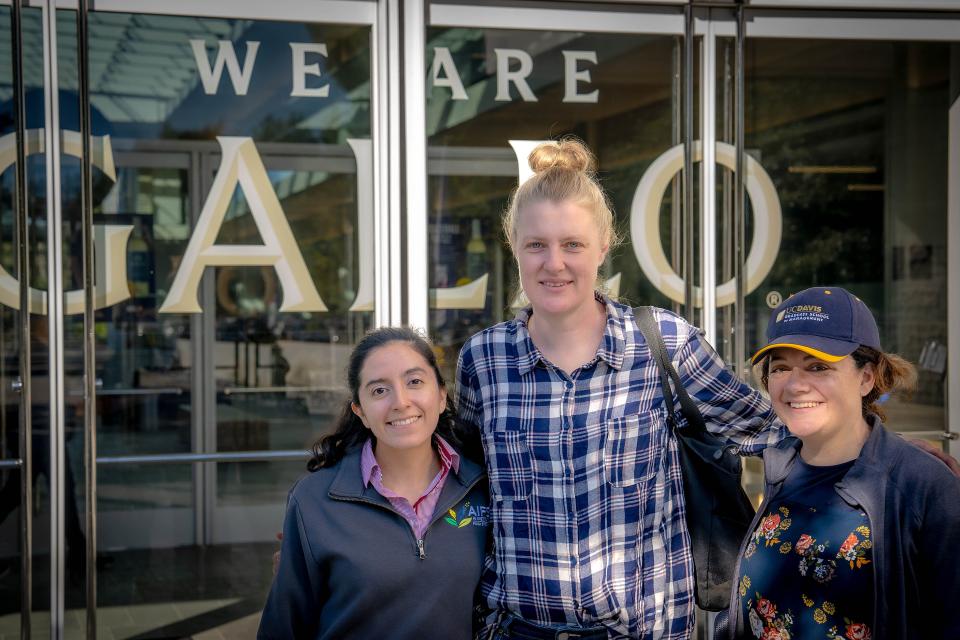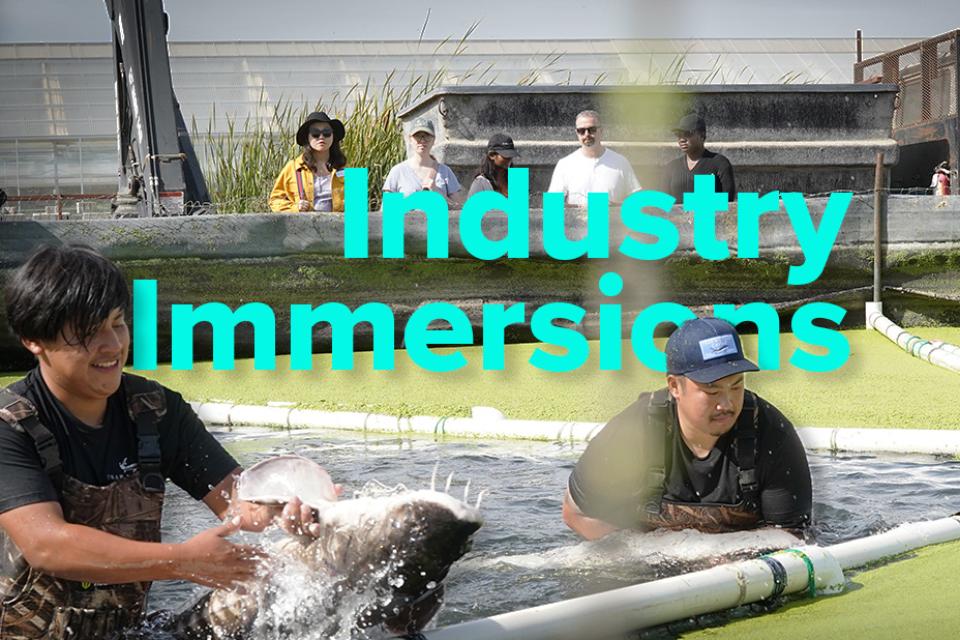Building a Sustainable Food Future Through My MBA
Food & Ag Industry Immersion leads to internship developing new seafood markets
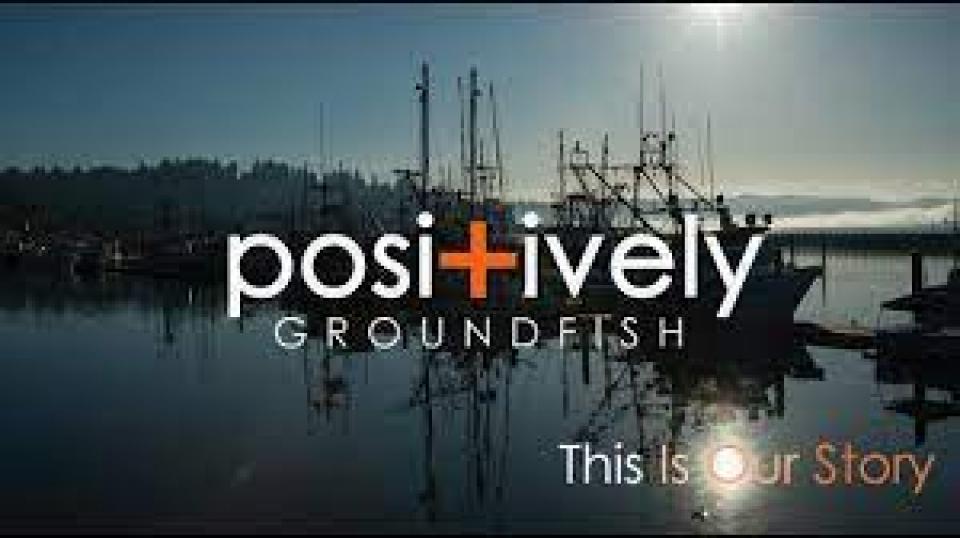
I spent my summer working with Positively Groundfish, a nonprofit organization championing sustainable seafood. It was one of those rare experiences where purpose met practice—where I didn’t just learn marketing theory or implement strategy on paper but saw firsthand how thoughtful ideas can create ripples of change in the ocean of sustainability.
Why I Chose UC Davis
I chose the UC Davis Graduate School of Management to pursue my MBA because of its deep expertise in food tech, innovation and sustainability. It represented a place where I could connect innovation with real-world challenges—not just business problems, but those that affect communities, ecosystems and food systems.
The Food and Agriculture Industry Immersion was a major factor in my decision. This one-of-a-kind deep dive experience takes you well beyond case studies and classroom discussions. You have the opportunity to go behind the scenes on exclusive tours of factories, walk through agribusiness farms and tackle real-world issues on the front lines of food systems transformation.
Before my MBA, I worked in tech, policy and investment promotion in India, where I witnessed how businesses and policies evolve when strategy and purpose align.
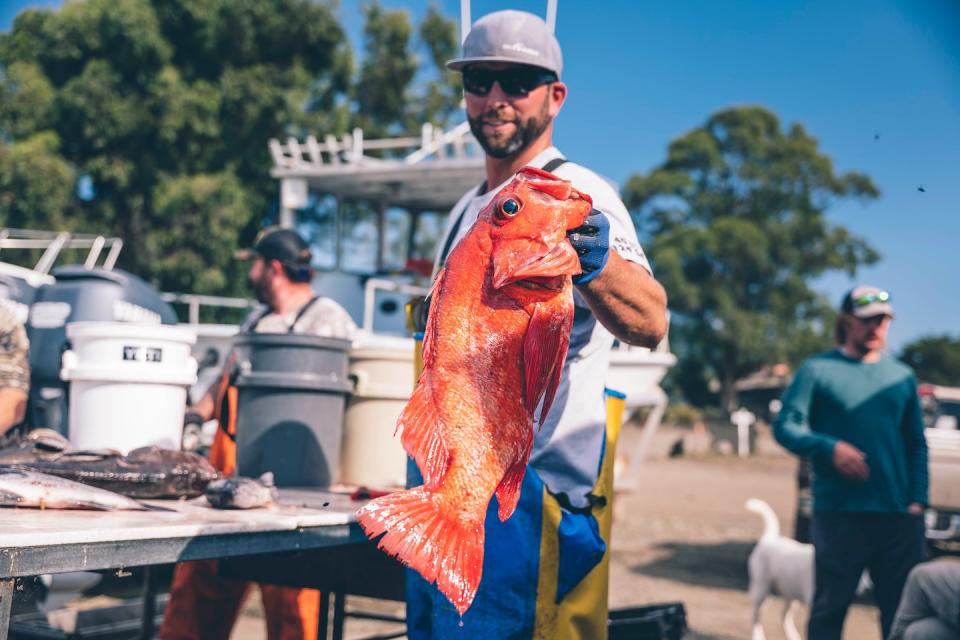
I facilitated more than $300 million in investments and led campaigns that connected global companies with the Indian market. But I wanted to go deeper—to understand how businesses could grow while genuinely serving people and protecting the planet.
The Graduate School of Management (GSM) felt like the right place to gain that perspective and build that skill set.
The Work: Building an Accelerator for Sustainable Seafood
My experience and networks built in the Food & Ag Industry Immersion led to my summer internship at Positively Groundfish. The California-based nonprofit is dedicated to revitalizing West Coast groundfish fisheries by promoting sustainable harvesting, developing new markets and supporting seafood entrepreneurs.
During my internship, I worked on the Catch+Create Accelerator, a pioneering initiative helping seafood entrepreneurs transform underutilized West Coast groundfish into innovative, market-ready products.
My internship centered on designing marketing strategy, creating an application and evaluation system and mapping funding pathways for food and consumer packaged goods startups navigating the complex early-stage landscape.
The project demanded a blend of research, analytical rigor and creative thinking. I collaborated directly with the leadership team to ensure every element—from participant selection criteria to brand storytelling—aligned with Positively Groundfish’s mission of making sustainable seafood accessible and appealing.
Under the mentorship of Jana Hennig, I gained invaluable exposure to the U.S. startup ecosystem and the mechanics of accelerator programs while applying strategic frameworks I’d learned from GSM Lecturers Vanessa Errecarte and Julie Morris.
What My Internship Taught Me
Strategy isn’t just about spreadsheets and KPIs. It’s about connecting people, purpose and ideas in ways that create lasting impact. Every decision we made—from how we positioned the accelerator to how we communicated with potential participants—had to balance market viability with mission alignment.
It’s easy to talk about sustainability in theory; it’s harder to build systems that make it economically viable and scalable. Working at the intersection of food, fisheries and innovation reminded me exactly why I came to UC Davis.
The Food & Ag Industry Immersion didn’t just teach me about supply chains or consumer trends—it showed me how thoughtful strategies ripple outward, shaping not just industries but the communities and ecosystems they touch.
Building a Sustainable Future Through My MBA Journey
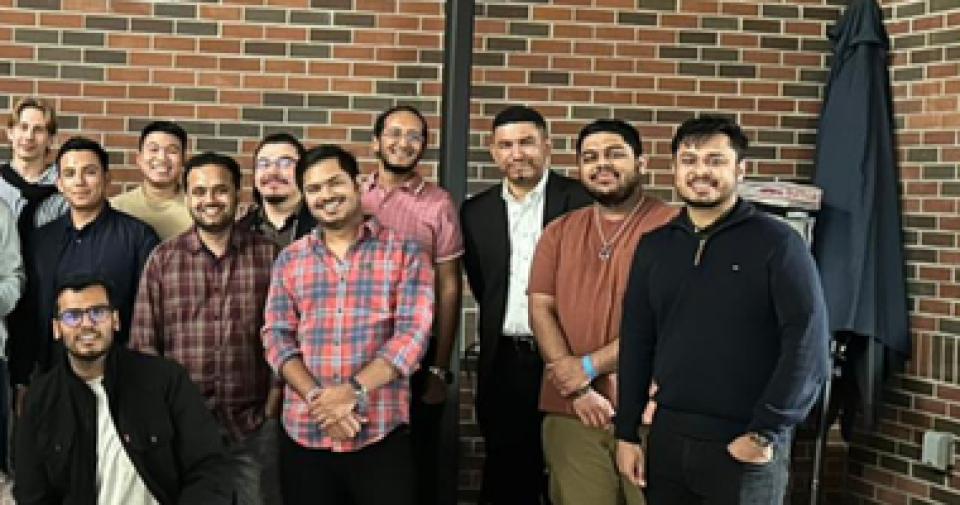
This experience reinforced something I’ve seen across my career—from launching political campaigns in rural India to building marketing strategies for startups—that meaningful work happens when you combine strategic thinking, data-driven decision-making and storytelling that resonates.
Whether I’m helping seafood entrepreneurs find their market or guiding European companies expanding into India, I follow the same approach—understand the ecosystem, design for impact and deliver with purpose.
As I continue my MBA journey and look toward full-time opportunities in strategy or product marketing, I’m grateful for experiences like this one that blur the line between learning and doing, between business school and the real work of building a more sustainable future. Because the best strategies don’t just grow businesses—they grow ideas worth spreading.
